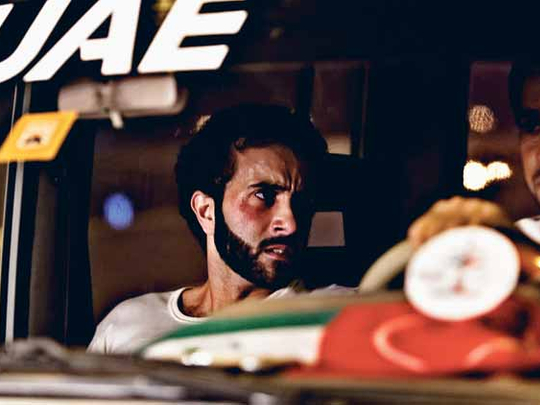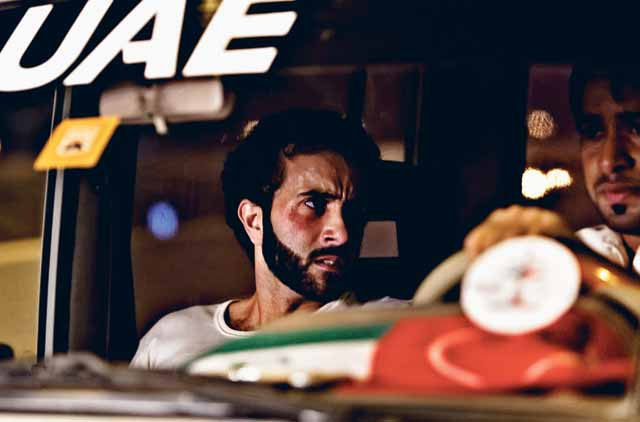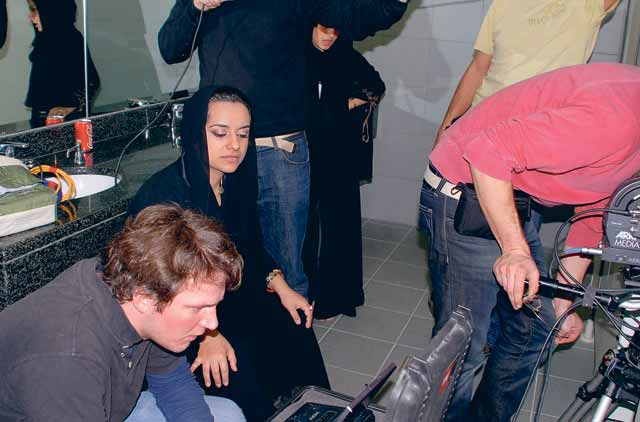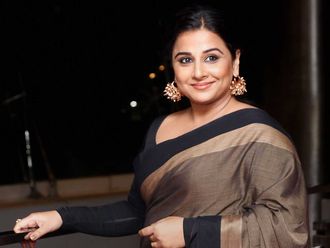
Dubai: Three months after the UAE's first international feature film premiered at the Dubai International Film Festival (DIFF), it is yet to get a commercial release, even as a novel online campaign by the Emirati filmmaker to demand its screening in the country gains ground.
While the campaign for City of Life by Ali Mostafa is believed to be targeting a collection of 100,000 votes to convince the box-office biggies of its screenworthiness, for the fledgling film industry in the UAE it's a battle against several odds as another top filmmaker Nayla Al Khaja outsources the production of her next film Honeymoon to India to cut costs back home.
Industry representatives said that from lack of funds and constraints with content development to issues concerning talent, marketing and distribution, there are many challenges that the homegrown film industry has to contend with in an effort to prove its mettle, even as a globalised UAE embraces artistic talent from across the world.
Question of grants
"Ninety per cent of the artistic works that are exhibited here are foreign. That equation could change if grants are given to domestic talent which, in turn, will reflect the soul of the city," said Nayla, adding that her next film to be shot in Kerala, southern India, will regretfully have only two Emiratis in lead roles.
"I am forced to outsource production because I cannot afford to do the film here," she said, adding that a five-minute short film on 35mm could cost anywhere between Dh60,000 and Dh100,000, with a digital version costing half the amount.
"It is very expensive to make a film in Dubai," admitted Mostafa, adding that there was no concept of filmmaker grants when he started off.
Explaining why City of Life was delayed in coming to the big screen, he said, "It is taking long because, unfortunately, we do not have a lot of distributors in the region. So we need to wait for meetings. We are also trying to find the best time to release it commercially where it doesn't clash with the Harry Potters and the Twilights so as to give us a chance amongst the big boys," he said.
Responding to media reports that he was finalising a deal with distributors Gulf Film for City of Life, he said, "I have no comment on this. I am not going to say that this is true, nor am I going to say this is false. Both parties need complete professional privacy if they want something to happen or not to happen, whether it is with Gulf Film or any other reputable distributor."
Asked whether the ‘Demand It' campaign was aimed at making a statement to the distributors, he said, "Not exactly."
"It is a concept that worked well with the film Paranormal Activity. DEMAND IT is where you can select the film to release in your country from anywhere in the world. If the numbers are significant enough, it will give us enough reason to produce more prints for that region. It is a great way of marketing. You deal directly with the consumer."
When asked whether City of Life was initially banned - the film is an urban drama on Dubai that exposes the complex network in a multicultural society - Mostafa said, "There were obviously going to be complications with anything that is so new. All I can say is that I made a film about the city of one man and I only would have liked him to give me the final blessing. His Highness [Shaikh Mohammad Bin Rashid Al Maktoum, Vice-President and Prime Minister of the UAE and Ruler of Dubai] did see my film and praised us for its achievement and has given his support."
Mostafa said, "I think the only [other] support this film really got was from the press," adding that he received a huge following without spending a dirham on marketing. "I am hoping that with a little budget, we can prove that our film industry is on par with the internationals at the box-office," he said. He felt the planned establishment of a filmmaker's guild would help differentiate serious filmmakers from home/vacation video-makers.
Reference to reality
Commenting on the challenges of content development, Nayla said, "If they expect to make films that are only positive, without any reference to reality, then that will be the death of film-making."
"Film-making is not advertising," she said, adding that films are necessarily a mixture of the good and the bad. "Censorship should reflect what the people want and take it one step beyond. Market research determines that extra push," she added.
Just back from a 23-day trip to the United States, Nayla was among 17 filmmakers from around the world to be specially picked by the US Department of State for its International Visitor Leadership Programme (IVLP), a professional exchange programme for current and emerging foreign leaders. "This was the first time that the UAE was represented in the field of films," she said, adding, "but we have so much of learning to do."
Tariq Syed, an Indian director and producer based in Dubai, said there was tremendous opportunity for industry conglomerates, organisations and government bodies to take initiatives in supporting filmmakers, while developing a film development corporation to work with them.
If filmmakers have a financially feasible plan, funding bodies or a film development corporation can support them in producing these ventures with "crossover medium-level budgets" and tie-ups with local and regional cinema distributors, he said.
Syed said actors are not easy to find in the UAE though there is talent in radio, TV and theatre. "For our next film Abood's Lost Camel, we have been calling schools to look for bright boys and girls who can act amongst Emiratis and non-Emiratis," he said.
"Most of the professionals here do not constitute actors really," he said, adding, "The industry here demands a talent pool and we are creating it through a contest: My Run Up To Cinema."
GFF Support
On February 16, the Gulf Film Festival (GFF), an annual event celebrating Gulf cinema and supported by the Dubai Culture & Arts Authority, invited applications for a script competition to encourage local production of films by Emiratis. A sum of Dh120,000 was announced for three contest winners.
Masoud Amr Allah Al Ali, Director of the GFF, said the competition is one of the first initiatives directly aimed at encouraging screenwriting among Emiratis. He said, "The country lacks a professional school in the field of cinema."
While there are some institutes like the New York Film Academy in Abu Dhabi and Manhattan Film Academy in Dubai that have been recently set up, Emirati students have long since gone abroad to get training. He said state funding could help in better planning and organised production of films.
Asked about the lean representation of Emirati films at DIFF 2009, Al Ali, who is also the Artistic Director of DIFF, said, "There were eight Emirati films and six from the GCC among 168 films that were screened."
He said this is not a bad ratio, given that quality content is a key criterion. "There were just six Indian films," he said by way of comparison.














